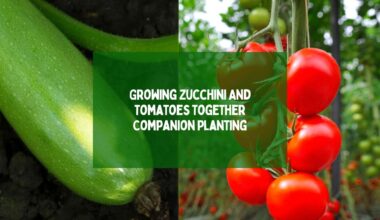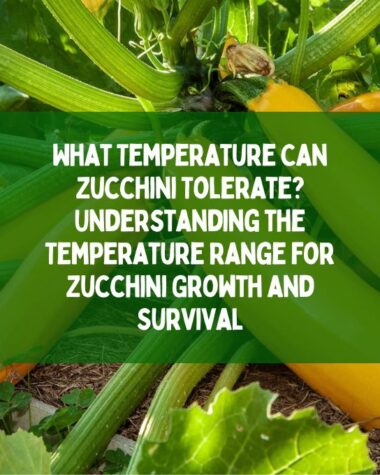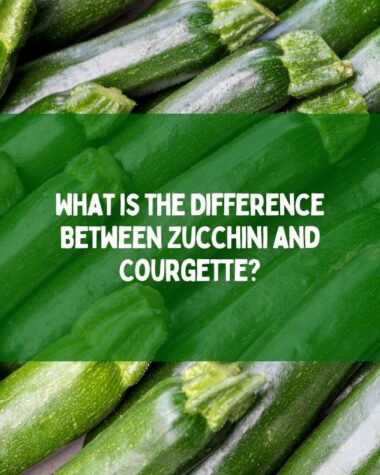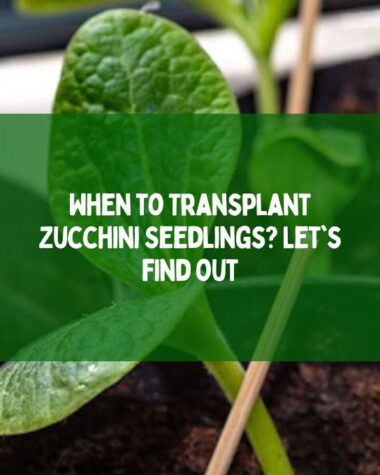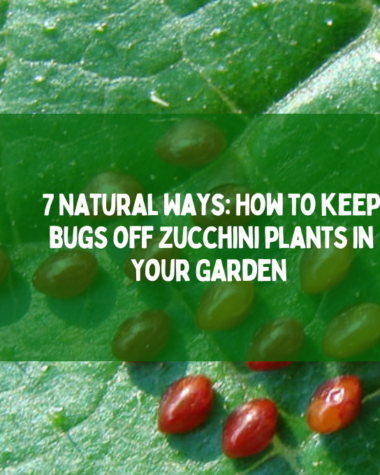Yes! Growing zucchini and eggplant together using companion planting techniques is a smart and beneficial gardening approach. Companion planting involves strategically pairing plants that can mutually benefit each other by enhancing growth, repelling pests, and improving overall yield.
Zucchini and eggplant make excellent companions, as they have similar growing requirements and complementary characteristics. Zucchini acts as a beneficial shade provider for eggplants, shielding them from intense sunlight. Eggplants provide a natural deterrent to pests that commonly affect zucchini.
By combining these two versatile vegetables through companion planting, gardeners can optimize their space while creating a harmonious and thriving garden ecosystem.
In this article, I will tell you about the companion planting method of growing zucchini and eggplant together.
Let’s start.
What Is Companion Planting?
Companion planting is a gardening technique that involves strategically growing different plants together for mutual benefits. It is based on the concept that certain plants can enhance each other’s growth, deter pests, improve soil health, and increase overall productivity.
Companion plants can provide shade, attract beneficial insects, repel pests, or act as natural supports. For example, planting marigolds with tomatoes can help repel pests, while growing zucchini near eggplants can provide shade for the eggplants.
Companion planting promotes biodiversity, maximizes space utilization, and reduces the need for chemical pesticides. It is an eco-friendly and sustainable approach that has been practiced for centuries to create thriving and harmonious garden ecosystems.
Related Reading
- 7 Natural Ways: How to keep bugs off zucchini plants in Your Garden
- Best Zucchini Varieties To Grow In Containers
- Pruning Zucchini Plant: Maximize Your Zucchini Harvest with Pruning
- How to Harvest Zucchini: Tips and Techniques to Ensure a Rich Harvest
Can Zucchini And Eggplant Grow Together?
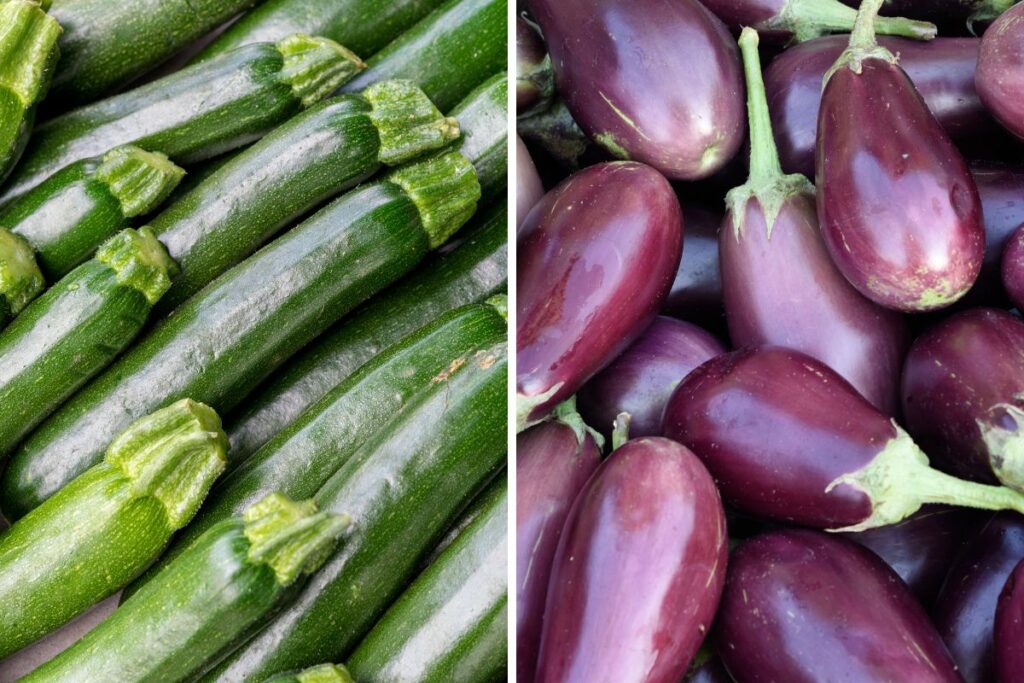
Yes, zucchini and eggplant can be grown together in the same garden or planting area. They are both warm-season vegetables that have similar growing requirements, making them compatible companions.
Both zucchini and eggplant thrive in full sun and well-drained soil. By planting them together, you can maximize the use of space and create an excellent vegetable garden.
It’s important to consider the spacing requirements of each plant to ensure adequate air circulation and prevent overcrowding.
Best Guides For Growing Zucchini And Eggplant Together

When growing zucchini and eggplant together, it’s essential to provide optimal growing conditions and follow certain guidelines for a successful harvest.
The steps are given below:
1. Sunlight and Soil Requirements
Choose a planting location that receives full sunlight for at least 6 to 8 hours a day. The soil should be well-drained, rich in organic matter, and have a slightly acidic to neutral pH.
2. Spacing
Allow sufficient spacing between the zucchini and eggplant plants to prevent overcrowding. Zucchini plants typically require around 3 to 4 feet of space between each plant, while eggplant plants need about 2 to 3 feet.
3. Planting
Start by preparing the soil by incorporating compost or well-rotted manure. Plant the zucchini and eggplant seedlings or seeds according to the recommended planting depth, which is typically around 1 inch deep.
4. Watering
Provide consistent and deep watering for both plants. Aim to keep the soil evenly moist but not waterlogged to prevent issues like root rot. Mulching around the plants can help retain moisture and suppress weed growth.
5. Fertilization
Apply balanced organic fertilizer or compost at the time of planting, and consider side-dressing with additional compost or organic fertilizer during the growing season to promote healthy growth.
6. Support for Eggplants
Depending on the variety and size, some eggplants may benefit from staking or caging for support. Install stakes or cages early in the growing process to avoid damaging the plant’s roots.
7. Pest and Disease Management
Regularly inspect the plants for signs of pests like aphids, flea beetles, or squash bugs. Consider using organic pest control methods like companion planting with insect-repelling herbs or introducing beneficial insects.
8. Harvesting
Both zucchini and eggplant have different harvesting techniques. Zucchini is typically harvested when the fruit is young and tender, usually around 6 to 8 inches in length.
Eggplants are harvested when the fruits reach a desirable size and have a glossy appearance. Cut or twist the fruit off the plant, being careful not to damage the stems.
Tips For Successful Harvest
To ensure a successful harvest of zucchini and eggplant.
Here are some valuable tips to follow:
- Proper Timing: Harvest zucchini when they are young and tender, typically when they reach 6 to 8 inches in length. For eggplants, harvest when the fruits have reached their mature size and have a glossy appearance.
- Regular Inspection: Regularly inspect your plants for ripe fruits. Harvesting zucchini and eggplant promptly ensures the best flavor and prevents them from becoming overripe or overly mature.
- Use Pruning Shears: When harvesting zucchini, use sharp pruning shears or a knife to cut the fruit from the plant, making a clean cut near the stem. Avoid pulling or twisting the fruit, as it can damage the plant.
- Gentle Handling: Handle harvested zucchini and eggplant with care to prevent damage. Place them in a basket or container that allows for proper airflow.
- Harvest Frequently: Harvest zucchini and eggplant frequently to encourage continued production. Regular harvesting prevents the fruits from becoming too large or overripe, promoting the growth of new fruits.
- Don’t Delay Harvest: Avoid overripe or oversized fruits on the plant, as they can increase the production of new fruits and reduce overall plant productivity.
- Store Properly: Store harvested zucchini and eggplant in a cool, dry place. They can be stored in the refrigerator for a few days.
By following these tips, you can ensure a successful harvest of zucchini and eggplant and enjoy the fruits of your labor at their peak of flavor and quality.
Related Reading
- Eggplant Water Requirements: How Much Water Do Eggplants Need?
- 17 Plants You Can Grow With Carrots As Companions
- Tips and Tricks for Growing Healthy Greenhouse Tomatoes
- How To Train Pumpkin Vines?
Conclusion
Growing zucchini and eggplant together using companion planting techniques is a rewarding and beneficial approach for any vegetable garden. These two vegetables make excellent companions as they have similar growing requirements and can enhance each other’s growth and productivity.
Zucchini provides shade and protection for eggplants, while eggplants help repel pests that commonly affect zucchini. This symbiotic relationship created through companion planting leads to healthier plants, reduced pest issues, and increased overall yield.
Thanks for reading!

